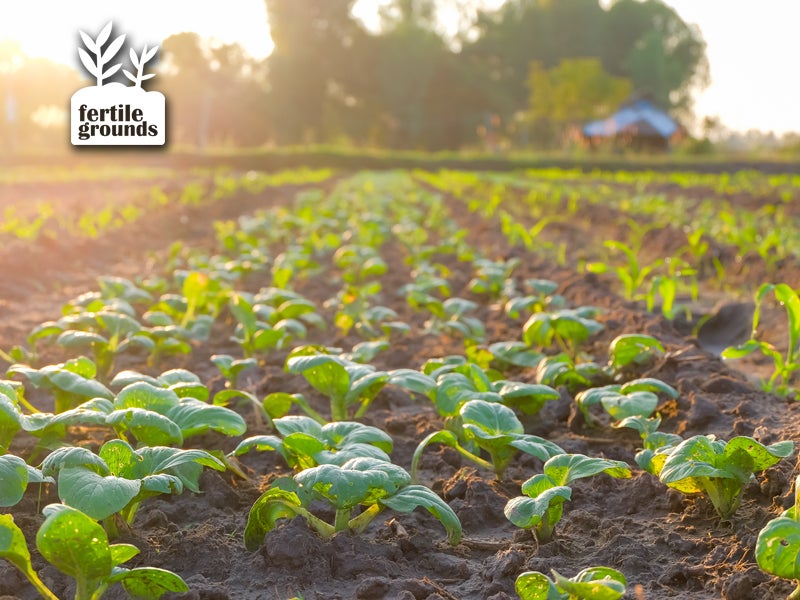Food 2.0: Working Toward Greater Efficiency in Agriculture
A new vision for agriculture would eliminate wasteful land use and make carbon sequestration an agricultural product.

This page was published 8 years ago. Find the latest on Earthjustice’s work.
Food is a necessity for life, and we need farms to produce it. Agriculture takes up more than 50 percent of land in the United States, and as such, it has a tremendous impact on environmental quality. At the same time, the food produced by our agricultural system has a trillion-dollar effect on public health. These impacts make food and agriculture a major—and under-addressed—health and environmental concern. Environmental advocates have devoted decades to making our energy system cleaner and more efficient. It’s time to devote the same attention to shifting to a healthier, more sustainable agricultural system.
I’ve spent many years fighting to protect people from pollution, including agricultural pollution, but I’ve also spent years managing farms. I’m familiar with some of the challenges of farming, as well as the opportunities. For example, the farms I help manage have become model-certified and are more sustainable and profitable than when they were conventionally run.
Also, at Earthjustice, my colleagues and I have spearheaded the Fertile Grounds blog series to broaden the conversation around food system reform. In doing so, we’ve learned from many other thinkers, farmers and advocates who are also exploring these issues. Recently, I pulled together some of what I’ve gleaned in an essay for “The Environmental Forum,” the journal of the Environmental Law Institute. My recent article presents a vision of farming that is healthier, more sustainable and better for rural communities.
My argument is that we can redesign agriculture in much the way we revamped our energy system—by making it more efficient. Efficiency means eliminating waste—in all its forms—from farm to fork. Many of the harmful impacts of industrial agriculture could be reduced if they were properly viewed as waste. That includes not only wasted food, but also the use of land to produce food that is not nutritious or to grow crops that are inefficiently converted into meat or biofuel. If we could trim this waste, we would have millions more acres available to produce what society needs most.
And what we most need right now is climate stabilization in a warming world. Carbon sequestration should be viewed as another vital product of agriculture, just like the food we eat. If we focus our land resources on the production of healthy food, carbon sequestration and conservation, we can make the future of agriculture—and of farmers—more secure, even as our climate changes. This model could also prove better for the national economy than the constant over-production of staple crops like corn and soy.
Agricultural policies should emphasize food over feed, more sustainable biofuels over corn ethanol and climate protection over the increased production of wasteful crops.
How can we make this new vision of agriculture a reality? It starts with reforming the farm policies that support an unsustainable model of industrialized agriculture, which produces an excess of wasteful and wasted food at great cost to our health and the environment. In order to transition to an entirely new model of production, farmers need support. Agricultural policies should emphasize food over feed, more sustainable biofuels over corn ethanol and climate protection over the increased production of wasteful crops. Together, we can usher in a new era of better quality food, more efficient farming and stronger farming communities.
About this series
Fertile Grounds is a blog series that examines the challenges and opportunities in ensuring access to healthy, sustainable and affordable food for all. We talk about the entire lifecycle of food—from seed selection and planting to consumption and disposal—because there is potential for improvement throughout. We’re informed by the expertise of our many clients and allies and by Earthjustice’s years of work to ban harmful pesticides, encourage sustainable farming methods, reduce pollution, support farmworker justice and promote a healthy relationship between farmers and communities.
Earthjustice’s Sustainable Food and Farming program aims to make our nation’s food system safer and more climate friendly.